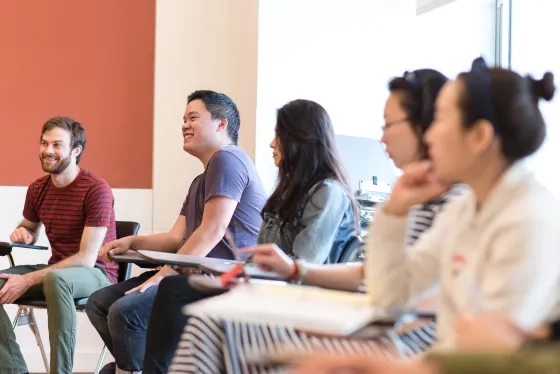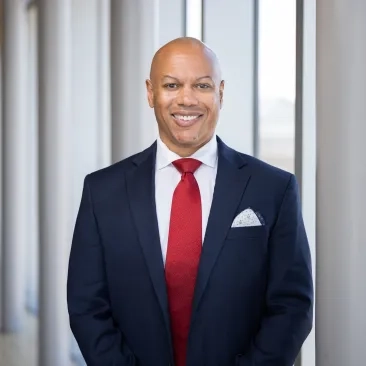In the Dark About Entertainment Law and Music Contracts? SFCM Has a Class for That
News StoryIt's not as glamorous as a concerto, but getting to grips with the nature of contracts and law before graduation is as valuable a skill as arpeggios, scales, and auditioning.
If there's anything scarier than sight-reading, it might be the world of entertainment law.
Fortunately, SFCM's Professional Development and Engagement Center (PDEC) is here to help. The department's Entertainment Law and Music Contracts class aims to set students up with a baseline of familiarity with the on-paper aspects of their careers. "The importance of our students being able to confidently navigate a contract, recording agreement, or collective bargaining agreement in today's music industry is essential," PDEC Chair Kristen Klehr says, "and we are committed to providing those direct learning opportunities within professional development here at SFCM."
The spring module of the class was taught by SFCM's Associate Dean for Student Affairs, Timothy Dunn, whose time in private practice and teaching law ensures students are getting the nuts and bolts from experience.
"As entertainers, as musicians, students need more than their gift," Dunn said. "Because frankly, it's the stuff outside of the gift that will sink a career." He continued, "The goal of the course is to give students enough information that they were not walking into a situation completely unaware of the lingo that was being used, some of the steps in the process, and the fact that they do have rights along every step of the way."
SFCM faculty and Emerging Black Composers Project finalist Jonathan Bingham made a guest appearance in the spring 2024 module, something student Jay Hernandez appreciated. "Timothy Dunn's class gave students so many perspectives on how to ensure that our music career will be a success with the steps he gave us in his class. Jonathan Bingham's vulnerability in sharing his experiences and stories with us helped us be aware of what can possibly happen in the music industry."
"They both added to the tools we have to navigate our decisions," she continued. "I learned so much within the module and wouldn't mind taking part two."
The class final saw students draft their own dream contract. "I wanted them to have that takeaway," Dunn explained, "because a lot of students here gig independently and there will be contracts in that world, but they might have a team to handle that for a few years."
The class is part of SFCM's overarching goal of a holistic approach to educating musicians for an entire career, not just performance. "I'm really excited about SFCM's approach to making sure that we educate the entire musician and not just what people see on stage," Dunn said. "Some colleges and universities let you major in something, graduate you, and then just ask you for money, versus having an actual curriculum of things, like financial and legal literacy, to help you once you embark on your career."
Learn more about SFCM's Professional Development and Education Center.


